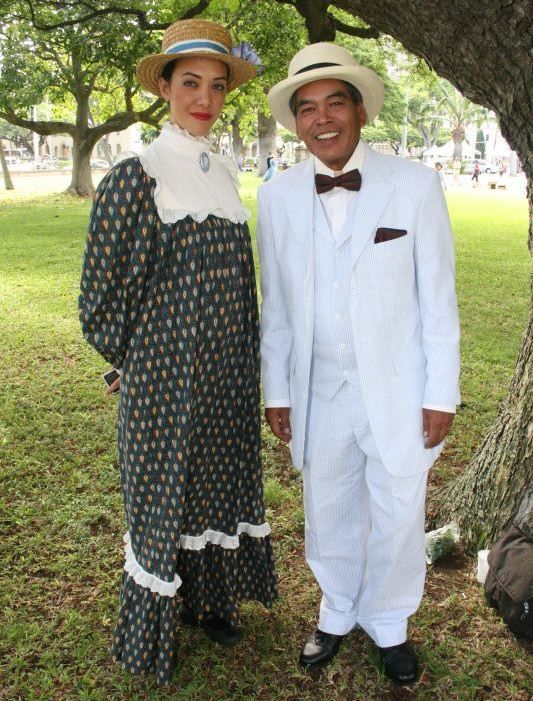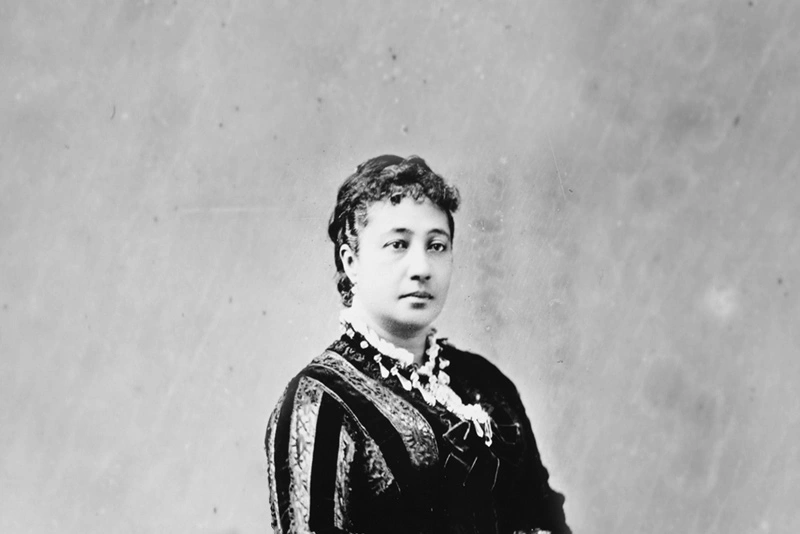We are quickly moving into September which is a great time to learn about Liliʻuokalani. Tuesday, September 2, 2014 marks 176 years since her birth.
Born Lydia Liliʻu Loloku Walania Wewehi Kamakaʻeha to parents Caesar Kapaʻakea and Analeʻa Keohokālole, she was given to Abner Pākī and Laura Konia to raise as their hānai (adopted) daughter. Liliʻu ascended to the throne in 1891, following the reign of her brother, King David Kalākaua.
As a beloved queen and last reigning monarch of the Hawaiian Kingdom, her reign was cut short by the overthrow of the Hawaiian government in 1893. Forced to endure hardships and deceitful accusations, Liliʻu was deposed as queen, charged with crimes, and imprisoned by the provisional government.
She maintained a personal directive of peaceful resistance, believing in God, and trusting that the political process would return the sovereignty of the Hawaiian Kingdom. To this day, Liliʻu remains an enduring symbol of hope for her people.
Below is a short passage from Liliʻu’s book, “Hawaii’s Story by Hawaii’s Queen.” She displays the strength, compassion, and dignity befitting of her position as Mōʻī Wahine (queen).
But for the Hawaiian people, for the forty thousand of my own race and blood, descendants of those who welcomed the devoted and pious missionaries of seventy years ago, – for them has this mission of mine accomplished anything?
It is for them that I would give the last drop of my blood; it is for them that I would spend, nay, am spending, everything belonging to me. Will it be in vain? It is for the American people and their representatives in Congress to answer these questions. As they deal with me and my people, kindly, generously, and justly, so may the Great Ruler of all nations deal with the grand and glorious nation of the United States of America.
On December 18, 1893, some eleven months after the illegal overthrow of Hawaiʻi’s government, U.S. President Grover Cleveland sends a message to the U.S. Congress regarding the situation in Hawaiʻi. An excerpt from his remarks reads as follows:
I suppose that right and justice should determine the path to be followed in treating this subject. If national honesty is to be disregarded and a desire for territorial extension, or dissatisfaction with a form of government not our own, ought to regulate our conduct, I have entirely misapprehended the mission and character of our Government and the behavior which the conscience of our people demands of their public servants.
Take a moment to reflect on Liliʻuokalani. Imagine the challenges of her era. Appreciate her leadership. Let’s remember the trials and tribulations, the obstacles, sacrifices, and successes of our past. Our knowledge of self and of history helps inform our future.
MAI POINA WALKING TOURS
Reservations are still being taken for “Mai Poina: The Overthrow,” a series of living history walking tours retracing the days leading up to the overthrow of the Hawaiian Monarchy.
The tours will take place on the grounds of ʻIolani Palace. Slots are still available on the following days:
DATES:
Saturday September 6
Sunday September 7
TOUR TIMES:
4:00, 4:20, 4:40, and 5:00 p.m.
Admission is free. To secure your reservation, visit www.hawaiiponoi.info, or call 534-8880.

“Mai Poina: The Overthrow,” is a walking tour that illustrates the days leading up to the overthrow of the Hawaiian Monarchy.

KS is a member of the Hawai‘i Pono‘ī Coalition, sponsor of the walking tours. Above KS staffers Marsha Bolson and Pi'ilani Hanohano greet guests.
TAGS
CATEGORIES
Kaipuolono Article, Newsroom, Department News, Features
Print with photos
Print text only










